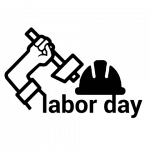Spiritual pruning. Cutting off. Trimming back. Rearranging. Elimination. Whatever you want to call it, removing people, practices, or unnecessary things from your life is a process. It is a process that every leader will face at several points in their walk, especially as they move higher and achieve new places in Christ. Sure, we love to talk about moving higher and moving on, but we don’t often consider the necessary maturity needed for decisions that come along with this process. If we look at it honestly, pruning becomes inevitable.
Whenever we talk about:
- Leaving behind toxic or negative relationships
- Overcoming bad, unhealthy, or negative habits
- Moving to a new phase of life
we are talking about the process of spiritual pruning. How is it relevant for leaders? Here we will look at the process of spiritual pruning and why it matters for us.
What is spiritual pruning?
Pruning is the agricultural process by which a tree or bush is cut down – almost to the point where it looks like it is dead – to promote new growth. Small branches (called “sucker branches”) suck the life and nutrients out of a tree, causing larger branches to stunt in their growth. hose branches can cause fruit to wither, stunt, or fail to produce, all together. In order for a tree to be at its most productive, it must be pruned – every nutrient-sucking, wasting, empty branch – must be removed.
The believer is compared to the tree throughout Scripture (Psalm 1:3, Psalm 52:8, Psalm 92:12-14, Hosea 14:6). We cannot expect we will be any different. We, too, will need pruning, in a spiritual sense. As leaders, spiritual pruning becomes especially relevant, because we are called to produce excellent fruit. As we learn the proper way to produce fruit (John 15:1-6), we model and teach such to others. Just as with natural pruning, spiritual pruning is a process – and one we must go through one stage at a time, at that.
Realizing who – or what – is hampering our development
There’s a halt in our process. Someone or something is causing us to stop development in some way. That sounds easy to spot, right? Sometimes it is, but sometimes it’s not. Then there are times when we know who or what it is…but letting go doesn’t seem to be an option for us at the time. Then we often have internal questions:
- Is this a permanent thing?
- Is it the right thing to do?
- How can/should I handle this?
These questions flood our minds when faced with big changes, especially if the situation is slightly “gray.” (What I mean by gray is that it’s not exactly clear how we need to handle it, but it’s obvious something needs to be done.) In situations like this, it’s important we discern what is at the bottom of it, instead of just hoping it will go away on its own.
It’s also important we properly identify who or what the problem is. Sometimes it can seem like one person or situation is the immediate problem, but what really needs to get pruned is someone or something else. The obvious problem isn’t always the one who needs to be pruned. Knowing the difference (seeing the situation from a spiritual as well as a practical perspective) requires us to step back in prayer and seek the Father as you take inventory of who – and what – is causing you difficulty in your walk.
Assessing a situation
Situations need to be assessed, especially when spiritually pruning someone out of a situation. Some people are only with us for a season – perhaps the season is now over. Maybe someone’s attitude or situation has changed, and that’s affecting their relationship with you. How will your life change if they continue with you – and how will it change if they are spiritually pruned back? Once again, prayer is most effective. Speaking with a trusted person is also advisable – but, reiterating what was discussed earlier – make sure it is a person who can be trusted, and not someone who needs to be pruned from your life, but you don’t suspect it.
Emotional maturity

As leaders, we must walk in and maintain a high state of emotional maturity. We cannot be babies, running back and forth, in a continual state of emotional turmoil. We also must recognize we can’t be surrounded by people who are in such a state, because such people create, as we would call it, “mess.” It’s easy to sympathize with messy people. They seem to have so many unmet needs, it is in the leader’s nature to desire to help and reach out to them. Leaders also try to show the way out of mess.
In the process, leaders need to step back and realize mess leads to more mess. It’s perfectly fine to empathize with a situation (feel for the individual in that situation), but the leader must step back and see a situation objectively. We must remain in place to be able to help and assist them. The same is true for our co-workers in the Gospel. It is perfectly fine to have friends, but we cannot be people who are so emotionally-driven that we lose sight of the work we are called to do as Christian leaders.
Where you are going, they cannot come
In John 13:36-37, Peter and Jesus have the following discourse: “
Lord, whither goest Thou? Jesus answered him, Whither I go, thou canst not follow Me now; but thou shalt follow Me afterwards.
Peter said unto Him, Lord, why cannot I follow Thee now?” (KJV)
Peter didn’t have the proper understanding to realize what was going to happen to Jesus. Thus, when Jesus spoke of where “He was going” – His crucifixion, death, and ultimately, His resurrection – Peter didn’t “get it.” He was thinking Jesus was going on a trip, off to another city somewhere. Jesus tells him, “Where I am going, you cannot come.”
As leaders, we will all have this revelation for ourselves at some point: where we are going, not everyone can come. Sometimes we have to make steps and trips on our own because those who have been with us don’t have the right understanding to know what’s next. Spiritual pruning is essential because the place we are going will have its own challenges, complications, and visions to complete. Realizing that where you are going is for you, but not them, is a large step in the pruning process.
There is a right and a wrong way to prune
Before I spiritually prune anyone or anything from my life, I spend time with God, seeking the right way to do it. In gardening, pruning is the same basic concept (something is cut away), but the way you handle a specific tree, bush, or shrub varies according to species. Some pruning is very drastic, while other forms are more subtle to accomplish the same results. You don’t prune an apple tree the same way you would a rose bush.
It’s important we approach spiritual pruning in the same way: recognizing who or what we are pruning and handle the pruning accordingly. Cutting someone off doesn’t mean you have to start a dramatic fight and end things on a negative note. Some people need a definitive door slammed in their face, but others might need nothing at all except a definitive wall of silence and distance. Someone might need a letter, someone might require a meeting, some might require a phone call, others might require no words at all. Know how to prune, based on the circumstances and relationship you have with someone.
Prune as soon as you know it is time
In gardening, failure to prune in the appropriate season equates to a bad harvest. I don’t advocate procrastination when you know it is time to prune and you have discerned how to handle things in your situation. Waiting around only makes the process that much harder and arduous. It also gives you way more time than needed to mull over the issue, causing confusion.
Dealing with loss
Even when we know it’s time for someone or something to go, spiritual pruning can still leave a void. This is not always the case, but quite frequently, having lost someone or something close to us in a spiritual pruning process can be painful. We have to learn how to accept they are no longer in our lives, and acclimate ourselves to no longer working with nor experiencing their presence.
Look at what we need to “prune” within ourselves
As has been stated a few times in this column, pruning isn’t always about negative or difficult people. Whenever we are in a spiritual pruning stage, we should always do some self-examination. What personal issues need “pruning” within yourself? How can you become a better leader? How can you focus more intently on your vision and purpose in the Kingdom? What about you needs to change? Never leave yourself out of the spiritual pruning cut. Make sure you are right with God and where you need to be, and leave behaviors that need to be cut out on the branches of yourself that you will prune away.
Spiritual pruning is a seasonal process
If we want to keep growing in God, we have to keep spiritually pruning. We hear God’s words to us in John 15:2:
Every branch in Me that beareth not fruit He taketh away: and every branch that beareth fruit, He purgeth it, that it may bring forth more fruit. (KJV)
We must take these words to heart for ourselves. The secret to a great tree is great care. Pruning is the best way to make sure our leadership purpose is always maintained and developed, despite who or what comes or goes in our lives. Pruning reminds us people and situations are changeable, but God is our main constant, in season and out of season.













